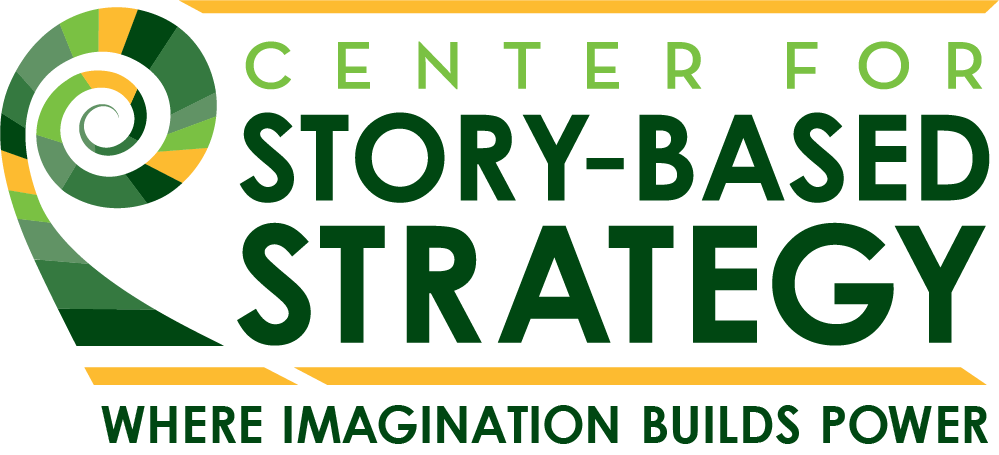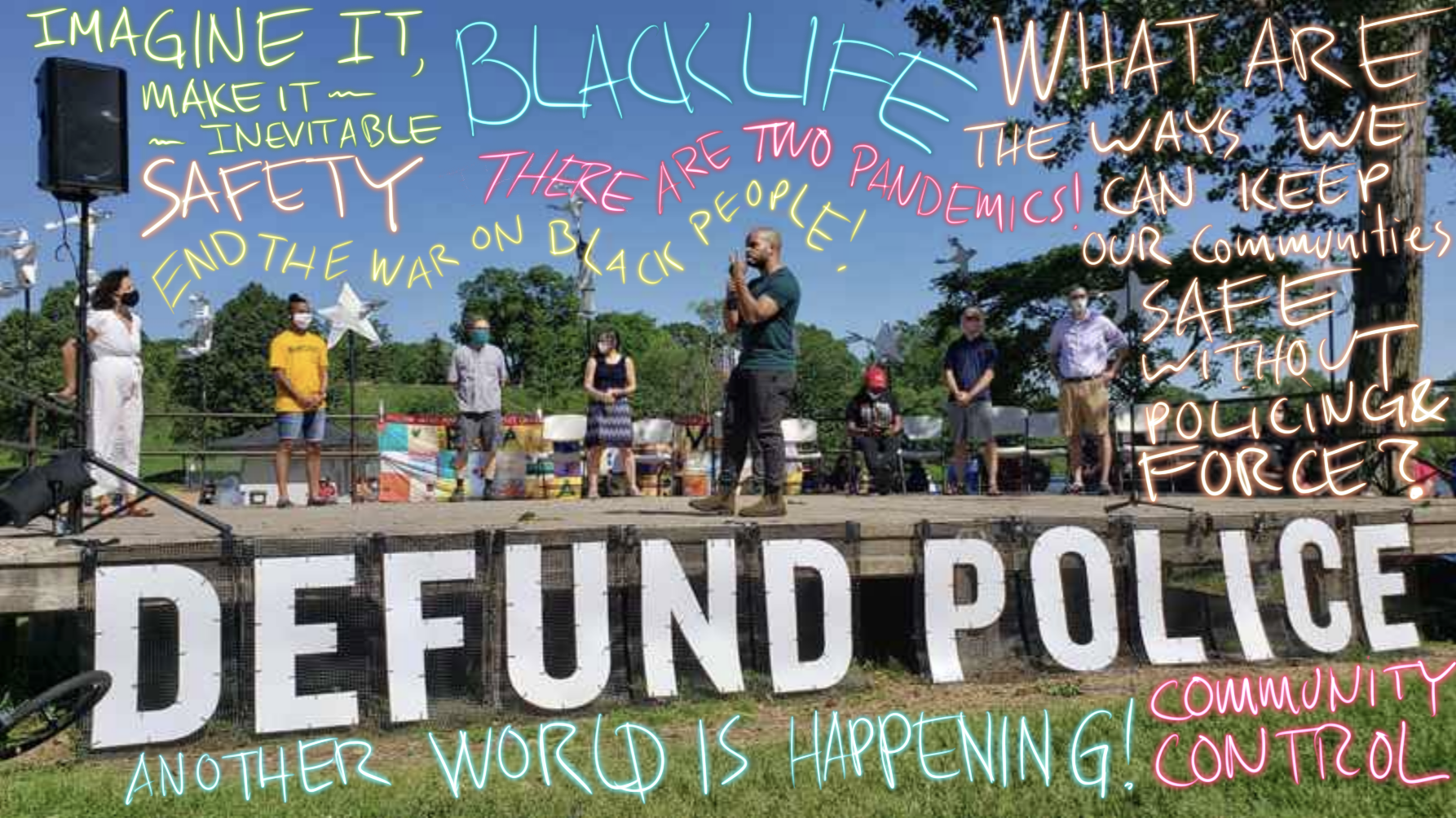In defense of Black life: expanding the narrative terrain towards abolition
As our movements for liberation coalesce around the leadership of Black freedom fighters and the Movement For Black Lives call to End the War on Black People, one of our roles here at Center for Story-based Strategy is synthesizing and reflecting our movements’ collective narrative wisdom, and to help identify narrative opportunities in this moment; to challenge anti-Blackness and defend Black life, and to understand and challenge the most basic assumptions about policing itself.
The defense of “Black Life” necessitates the valuing of Black Lives AND Blackness in all its forms, shifting the problem towards “the WAR on Black people.” And this moment of the twin pandemics of “COVID” and “police violence” further reveals that “stop killing Black people” is about way more than police accountability.
“But how?”
It’s a time-honored strategy. Holding fast to the status-quo makes people focus on the "how" with the demand to defund police.
“The terrain of “What” and “Who” (for who, by whom) is where we build narrative power. The terrain of “but how,” often an honest question from a place of fear of the unknown, closes off our imaginations. ”
In our quest for abolition, we often struggle to identify which underlying assumptions are operating in the battle of the story. Those in opposition inevitably question the legitimacy of "defunding the police" by framing their questions around the "how" FIRST as opposed to the "what" and “who.” This debate about how much force or punishment or types of non-lethal weapons and training obscures conversations about the vision we desire. So how do we shift the debate from “how do we police” to “what are the ways we can keep our communities safe?”
The terrain of “What” and “Who” (for who, by whom) is where we build narrative power. The terrain of “but how,” often an honest question from a place of fear of the unknown, closes off our imaginations.
Let’s notice how the narrative POWER shifts when we redefine these questions about defunding police:
“But…”
“How will the public feel safe?”
"How will defunding the police actually work?”
“How will the law be enforced?”
What happens if we choose to ask “what” and “who,” instead?
“What will make the public feel safe?” “Who do we mean by ‘the public’?”
“What will defunding the police do and who does that impact?”
“Who gets to decide how force is used?”
“What does the law look like in a world without policing and prisons?”
We see this moment as a critical opportunity to challenge what is fundamental to policing, and question the legitimacy of who gets to decide how force is used. The goal is to keep the narrative open and long enough to uplift community-control down the line.
“What parts of policing would you have to eliminate for it to not be policing anymore?”
“What if the “authority to detain” was removed but “hurting people is the last resort” remained, would it still be policing?”
“Our dream is that critical masses will soon accompany this with “another world is happening,” growing this new future in the rich soil of the works of Mariame Kaba, Ruth Wilson Gilmore, and Angela Davis. ”
Focusing on policing instead of police will also help us avoid what we're already starting to see as militarized institutions attempt to distance/differentiate from each other. In Oakland, as demands are focused on the Oakland Police Department (OPD), school district police are saying they are "boutique" in comparison; OPD has worked to distance themselves from California highway patrol (who murdered Erik Salgado two weeks ago); and worst yet, the acting chief of OPD recently threatened to resort to calling on the even-more-militarized National Guard, if any defunding happens.
Finally, "another world is possible" is a powerful frame our movements have been echoing for years, and we’re heartened to see it being amplified with so much vigor in this moment. As we build narrative power for abolition, we will ask questions about what and who the laws of society are made to serve and protect. Our dream is that critical masses will soon accompany this with "another world is happening,” growing this new future in the rich soil of the works of Mariame Kaba, Ruth Wilson Gilmore, and Angela Davis.
Here’s to celebrating and truly honoring all of the abolitionists and freedom-fighters who are working to build hope, construct alternatives, and imagine WHAT is inevitable in our shared vision for a more just future.
THANK YOU.

